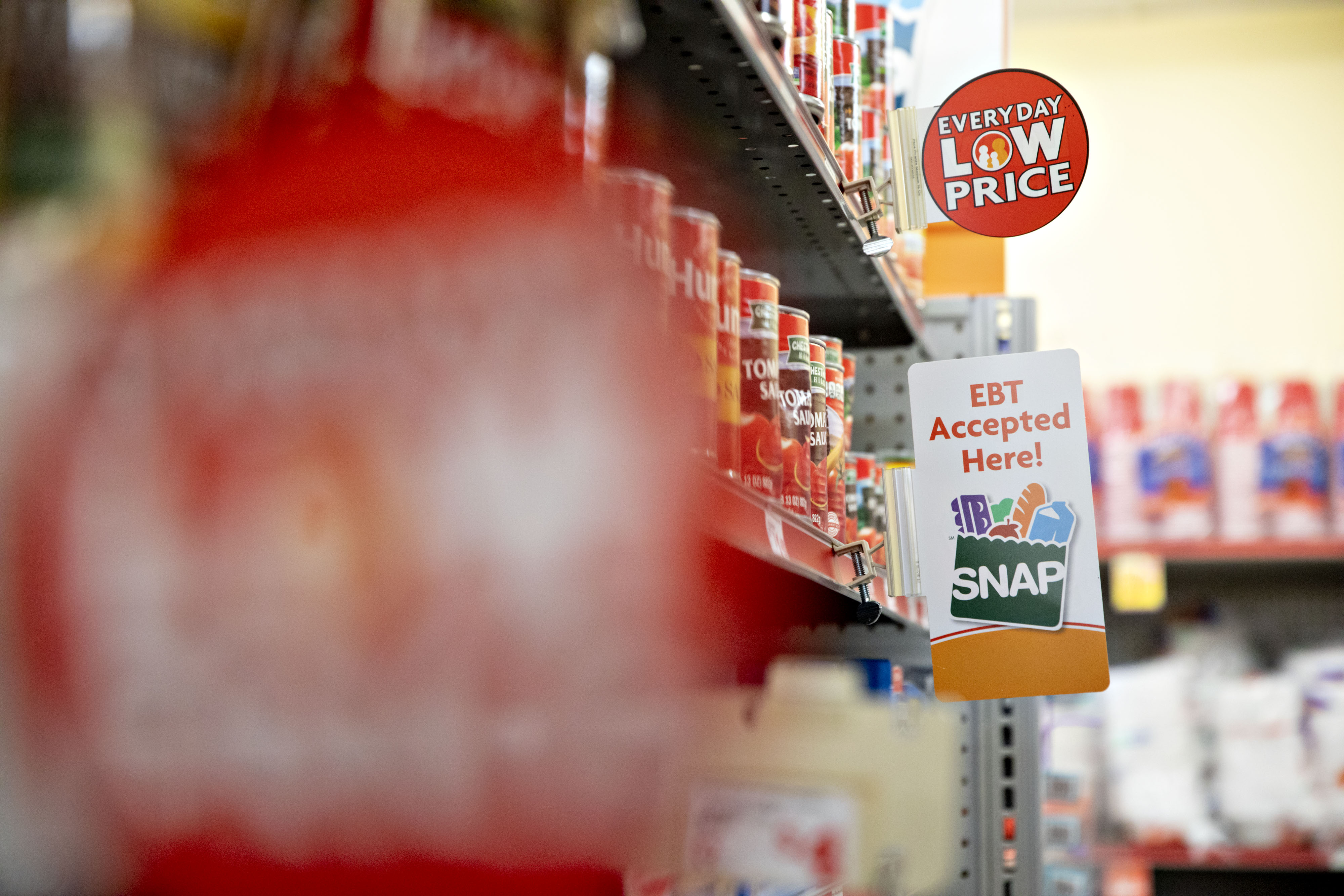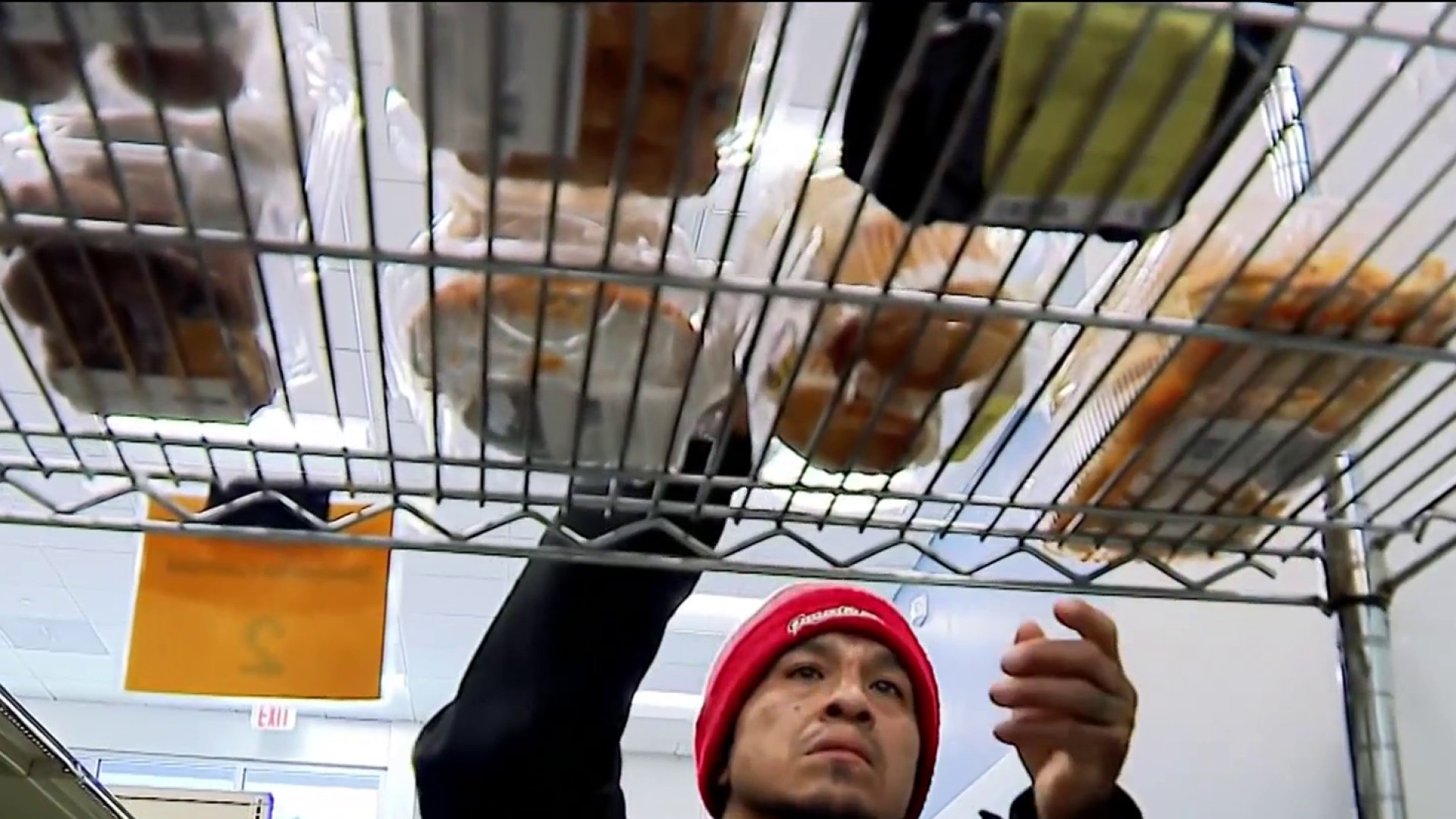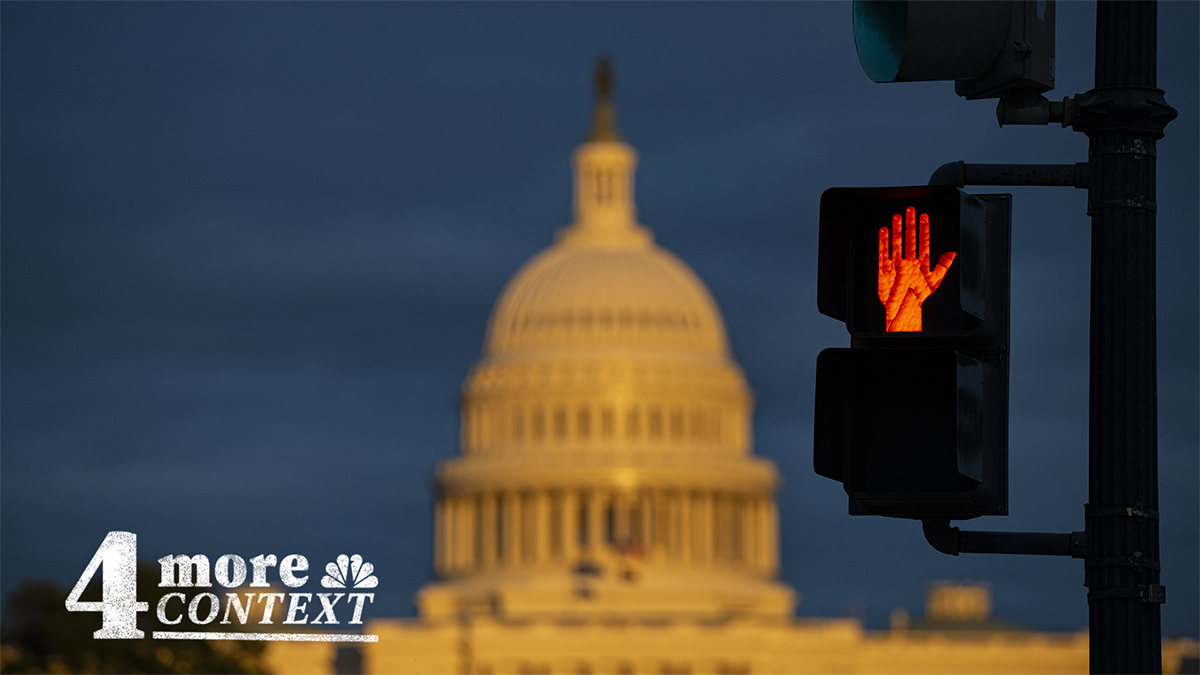Furloughed federal employees missed their first full paycheck on Friday after the Senate rejected dueling bills to pay workers during the government shutdown, with both Republicans and Democrats deflecting blame.
The shutdown stretched into Day 24, with no timeline for when the government might reopen.
Food banks in the D.C. area are sounding the alarm that they may not have enough food to serve a surge of people in need. Officials said they’re hit hard by federal funding cuts as furloughed federal workers seek help and SNAP food assistance benefits are at risk.
A Fairfax dad told News4 he didn’t need help from a food bank, but then his car broke down.
“I had to put my head down and just be humble, come and get food,” said Randy Villarroel, a client at Food for Others.
Here’s why the Senate rejected bills to pay federal workers during the shutdown
With unpaid staff and law enforcement standing nearby, Republicans objected as Democrats proposed a voice vote on their legislation to pay all federal workers and prevent President Donald Trump’s administration from mass firings. Democrats then blocked a Republican bill to pay employees who are working and not furloughed, 54-45.
The back and forth on day 23 of the government shutdown comes as the two parties are at a protracted impasse with no signs of either side giving in. Democrats say they won’t vote to reopen the government until Republicans negotiate with them on extending expiring subsidies under the Affordable Care Act. Republicans say they won’t negotiate on the subsidies until Democrats vote to reopen the government. Trump is mostly disengaged and headed to Asia in the coming days.
The Republican bill by Sen. Ron Johnson of Wisconsin would pay “excepted” workers who still have to come to work during the current government shutdown and any future shutdowns. The bill would “end this punishing federal workers for our dysfunction forever,” Johnson said.
But Democrats say the legislation is unfair to the workers who are involuntarily furloughed and could give Cabinet secretaries too much discretion as to who gets paid.
Johnson’s bill is “nothing more than another tool for Trump to hurt federal workers and American families and to keep this shutdown going for as long as he wants,” Senate Democratic Leader Chuck Schumer said ahead of the votes.
The Democratic bills would have paid a much larger swath of workers as most federal workers are set to miss paychecks over the next week.
“It seems like everyone in this chamber agrees we should pay federal workers,” Sen. Gary Peters, D-Mich., said ahead of the vote. But because of the shutdown, “they are paying a price.”
States worry about how to fill the gap in food aid ahead of a federal benefits halt
Officials in Virginia, Louisiana and Vermont pledged Thursday to keep food aid flowing to recipients in their states, even if the federal program is stalled next month because of the government shutdown.
The fate of the Supplemental Nutrition Assistance Program, or SNAP, which helps about 1 in 8 Americans buy groceries, is becoming a deep concern as it gets closer to Nov. 1, when the benefits could dry up without either a resolution of the federal government shutdown or other action.
Other states have explored using their own funds to prop up the program but have run into technical roadblocks, and it wasn’t clear whether the three newly announced plans have answers for those. Legislative officials in Vermont said they’re waiting word from the state administration on how the benefit would be delivered.
Virginia Gov. Glenn Youngkin, a Republican, said he was declaring a state of emergency to provide food benefits to SNAP beneficiaries.
Some states are telling SNAP recipients to be ready for the benefits to stop.
Arkansas is advising recipients to identify food pantries and other groups that might be able to help, and to ask friends and family for aid. Missouri and Pennsylvania officials, on the other hand, expect previous benefits will remain accessible and are telling beneficiaries to save for November if they can.
Separate federal program cuts this year have already put food banks that supply food pantries in a tough spot, said George Matysik, the executive director of Share Food Program in Philadelphia.
So dealing with an anticipated surge in demand could be tough.
Matysik said it’s especially acute for his organization and others in Pennsylvania, where a state government budget impasse has meant at least a pause in another funding stream. He said the group has had to cut about 20% of its budget, or $8.5 million, this year.
“Any time we have a crisis, it’s always the working class that feels the pain first,” he said.
NBC Washington’s Aimee Cho contributed reporting.
Get the D.C. area’s top news and weather delivered to your inbox every morning. Sign up for First & 4Most, our free newsletter.

Want more insights? Join Working Title - our career elevating newsletter and get the future of work delivered weekly.


